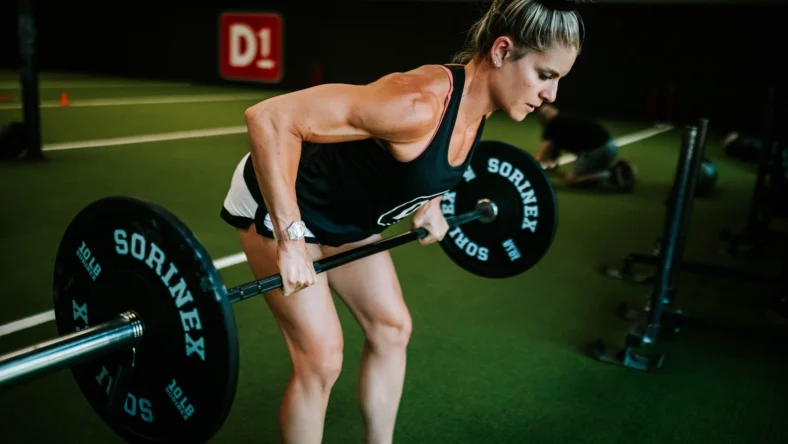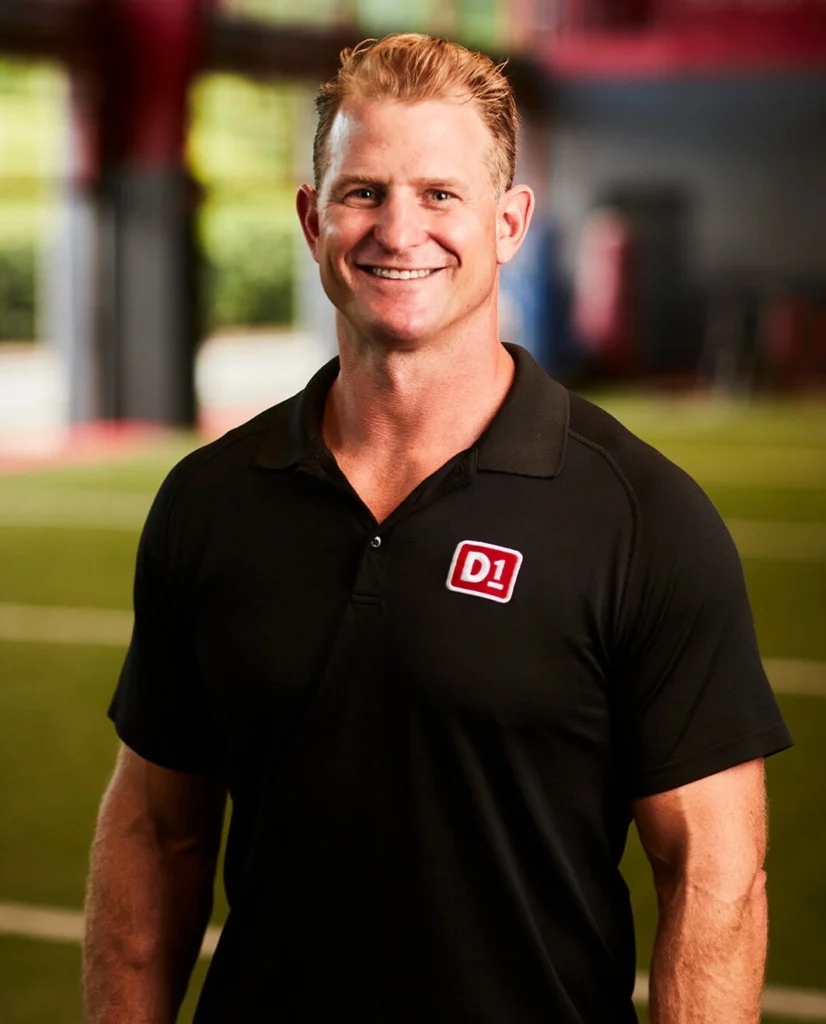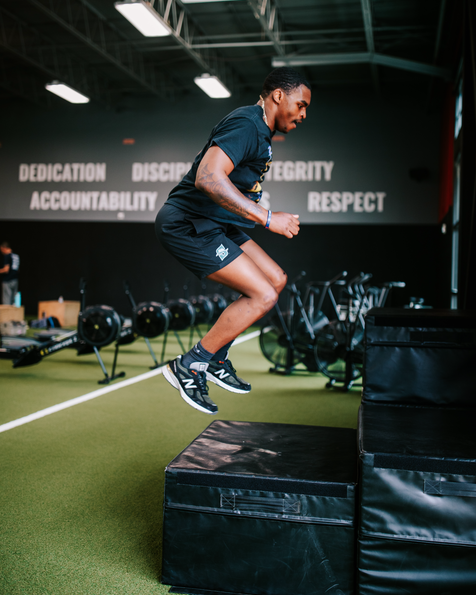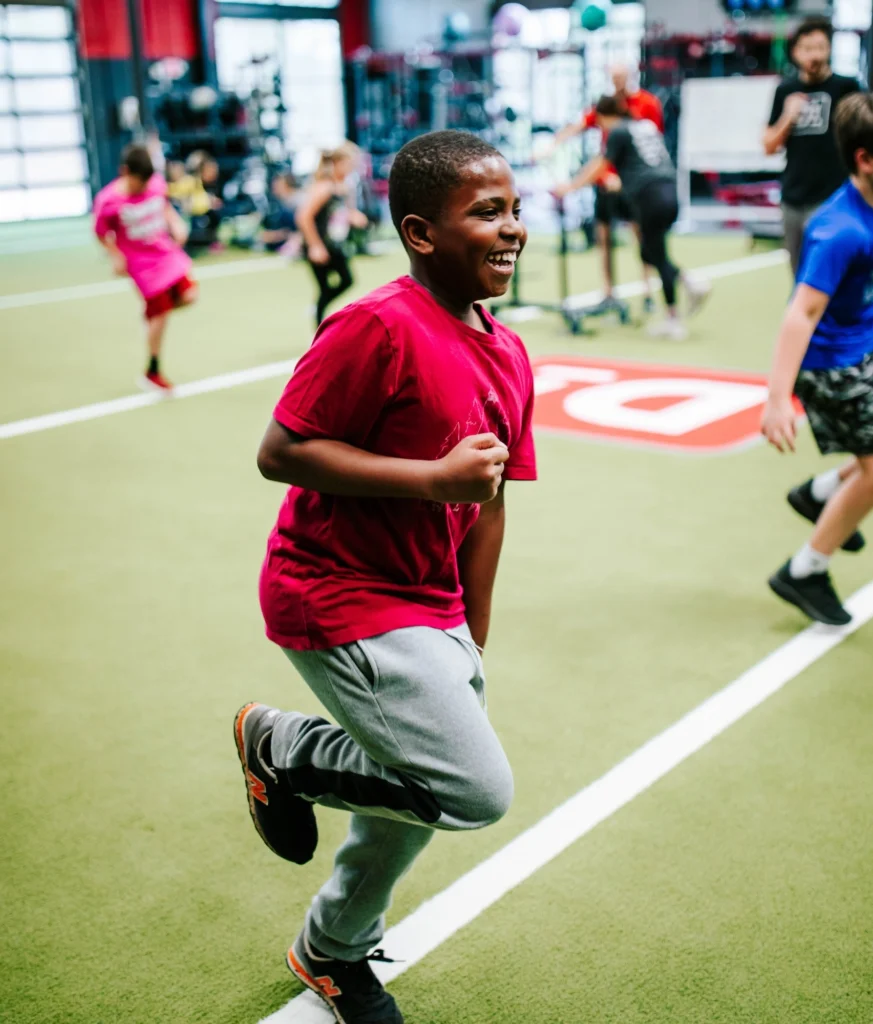
With 117 locations and counting, D1 Training has built a winning brand by recreating the atmosphere of a college football weight room
When Will Bartholomew looks back at his storied college football career, his fondest memories aren’t of winning a national championship or sharing a backfield with NFL legend Peyton Manning.
A member of the Tennessee Volunteers football team that won the 1998 national championship, Bartholomew admits his best moments as a college athlete were in the weight room and on the practice field, where he fell in love with the art of self-improvement through strength and conditioning.
“I loved playing, don’t get me wrong,” Bartholomew tells Athletech News. “I loved being on the field in front of 100,000 people, but where I felt a transformation happen was in that weight room and on that turf.”
Following a knee injury that prematurely ended his NFL career, Bartholomew founded D1 Training, a chain of fitness facilities that gives young athletes and adults alike a taste of what it’s like to train inside a Division 1 weight room.
“The whole business is built on replicating that D1 environment for communities, and helping athletes reach their goals,” says Bartholomew, who serves as D1’s CEO.

D1 Training has steadily expanded since Bartholomew founded the brand in 2001 in his hometown of Nashville, Tennessee. After growing to over 30 corporate-owned locations, the brand began franchising in 2018, setting the stage for explosive recent growth.
Today, D1 Training counts 117 gym locations in states across the country, with 252 more units in development as franchise sales boom. If you haven’t spotted one already, there’s a good chance you’ll see a D1 gym soon at a strip mall near you.
Bringing Athletic Training to the Masses
Young athletes (between 7 and 18 years old) make up the bulk of D1’s business, accounting for around 61% of the brand’s revenue. The other 39% comes from adults, who, for various reasons, want to train like they’re still in their playing days.
Parents often ditch their local gym and join D1 after seeing the impact Bartholomew’s brand has on their children’s fitness levels and sports performance.
“It’s interesting because when we initially open in these marketplaces, we get a lot of athletes who sign up,” Bartholomew notes. “All of a sudden the parents are like, ‘I ought to be training, too.’ So we really become that place for the whole family.”

While specific programs vary based on age, experience level and training goals, D1 workouts are built around the same strength and conditioning movements college athletes get put through at top schools like the University of Tennessee.
Plyometric exercises, sled pushes and pulls, and agility drills are all on the menu, along with plenty of weight lifting.
“We’re big believers in moving free weights and bars just like in a college atmosphere, ” Bartholomew explains. “We think that’s the best way to train, even for an adult.”
A testament to this approach, D1 has been endorsed by the NFL Players Association as an approved training facility and is a preferred partner of the National Academy of Sports Medicine (NASM). The brand has trained many college football stars for the NFL Combine, including a handful of first-round draft picks.

D1’s growth comes as strength training and functional fitness surge in popularity nationwide, not just among athletes but everyday fitness enthusiasts. As Americans increasingly ditch cardio machines in favor of more intense ways of working out, brands like D1 are well-positioned to continue expanding.
“There are so many people out there who want to train like an athlete, live like an athlete, eat like an athlete and wear what an athlete wears,” Bartholomew says. “It’s not just about being a celeb, it’s about, ‘This is who I am, this is my identity.’”
Pro Athletes as Brand Ambassadors
Professional athletes are getting on board, too.
D1 Training has partnered with sports stars including Manning, Tim Tebow and Chris Paul on business initiatives. Tebow, a former Heisman Trophy winner and NFL quarterback, will speak at the brand’s annual franchise summit next month. Paul, a 12-time NBA All-Star, starred in a recent D1 marketing campaign.
Manning, Tebow and Paul all experienced D1 Training for themselves before deciding to partner with the brand.
“All of them have trained at D1, and all of them have seen what it’s done for these communities,” Bartholomew says. “Peyton and I were working out together when he approached me like, ‘I’d love to get involved in the business.’”
Some current and former athletes have even become D1 Training franchisees: NFL players (and brothers) Sammy and Jaylen Watkins own their own D1 location, as does longtime former New Orleans Saints tight end Josh Hill.
Besides being a good business opportunity, athletes are drawn to D1 Training because the brand’s mission speaks to them on a personal level, Bartholomew believes.
“Every athlete out there would say, ‘If it wasn’t for this coach, I probably wouldn’t have gotten to where I did,’” Bartholomew adds. “We want to be that coach who inspires an athlete to go beyond what he thought he could do, and motivates him to reach goals that he never thought possible.”
“I think that’s what these celebrity athletes see,” the D1 Training CEO adds.
Expansion on the Horizon
Looking ahead, D1 is keeping its foot on the expansion gas pedal. With 252 units in development and additional franchise agreements getting signed at a rapid clip, many more D1 locations will soon be popping up across the country.
“Right now we’ve got around 30,000 athletes being trained by our coaches in the system,” Bartholomew reports. “How we’re going to be able to shape athletics over the course of the next 10, 20, 30 years, is really exciting.”
Beyond numbers, Bartholomew says everything D1 Training does comes down to “serving the athlete.”
As part of that mission, he wants D1 to become the go-to information brand for young athletes (and weekend warriors) around the country, helping them reach their goals with content, advice and, of course, top-flight coaching.
“I see us being the place where you go to get everything you want to be a great athlete,” Bartholomew says. “I’m defining an athlete as someone who’s dedicated to reaching their goals – it doesn’t have to be someone who’s playing a sport. I feel like I’m still an athlete even with all my injuries.”
